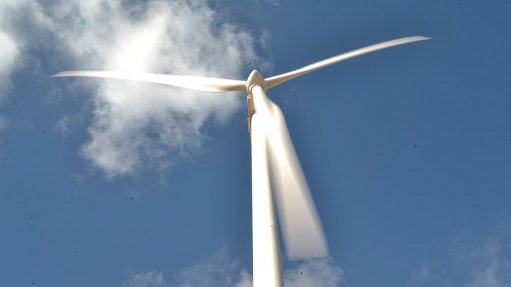
Italian multinational renewable-energy corporation Enel Green Power (EGP) has been awarded the right to sign 20-year energy supply contracts with South African utility Eskom for an additional 280 MW of wind power projects in the fourth round of government’s Renewable Energy Independent Power Producer Procurement Programme (REIPPPP).
The 142 MW Soetwater and the 138 MW Garob wind farms, to be built in the Northern Cape and targeted for completion by 2018, will see the Rome-based group investing some €340-million in the South African renewable-energy sector.
The projects will collectively generate some 1 000 GWh/y of renewable energy and add to EGP’s 142 MW Oyster Bay, 141 MW Nxuba and 142 MW Karusa wind farms, bringing the total capacity awarded to the group in the fourth round of the REIPPPP tender to 705 MW.
These projects will also join the company’s operational 10 MW Upington solar power plant, in the Northern Cape, and the 513 MW of projects for which 20-year power supply contracts with Eskom were signed, following the third round of the REIPPPP in 2013.
These contracts are linked to the 82.5 MW Aurora, 66 MW Tom Burke, 82.5 MW Paleisheuwel and 82.5 MW Pulida solar facilities, as well as the 111 MW Gibson Bay and 88 MW Nojoli wind farms.
EGP CEO Francesco Venturini says the awarding of the supply contracts positions the company as the largest private renewable-energy player in Africa.
He adds that the company plans to retain South Africa as a “strategic country”, owing to its rapidly expanding electricity demand, growing economy and stable regulatory and legislative framework.
“We are ready to more than double our investment [in the country], increasing it to more than €1.3-billion from €600-million,” he says.
EGP outlined in a statement last week that, in line with the REIPPPP rules, it had participated in the tender through vehicle companies in which it held the majority of the shares, in partnership with major local players.